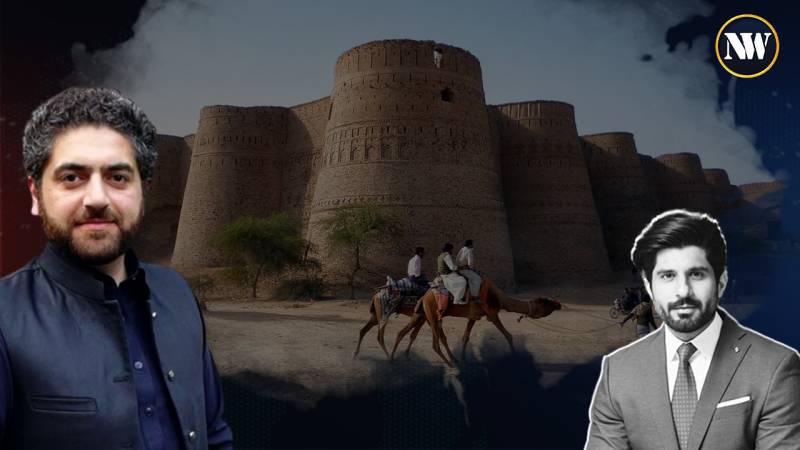In a recent installment of NWG, Nauraiz Rana: a World Bank economist, converses with Muhammad Usman Awaisi, who has just been elected as a member of the National Assembly representing South Punjab.
Awaisi highlights the changing political dynamics in South Punjab, focusing on the traditional method of selecting leaders based on family ties or specific backgrounds. He criticizes this approach as feudalistic.
At the core of Awaisi's narrative is the acknowledgment of shifting societal attitudes, especially among younger demographics. He admits to underestimating the desire for representation that aligns with evolving perspectives and aspirations. This realization emphasizes the need for political engagement that addresses contemporary societal concerns.
Awaisi positions himself as a voice for these sentiments, stressing the importance of delivering tangible outcomes to address socio-economic disparities. He further highlights the challenges confronting South Punjab, particularly regarding autonomy and resource allocation. He expresses frustration over the sluggish progress in achieving administrative independence, attributing it to systemic hurdles and bureaucratic inertia.
Despite legislative attempts to create a separate administrative unit, tangible progress has been lacking, highlighting a gap between political promises and actual implementation. Awaisi's critique underscores a broader frustration with bureaucratic inefficiency, which hinders efforts to address the region's developmental needs.
A core aspect of Awaisi's advocacy is economic equity and social justice. He calls for a fairer taxation system that lightens the burden on the poor while ensuring accountability for the wealthy. Awaisi's push for progressive taxation and targeted subsidies demonstrates his dedication to tackling systemic inequalities and promoting inclusive economic development.
His focus on prioritizing marginalized communities exemplifies a commitment to social justice that transcends political affiliations. He stresses, "We need to differentiate between how we tax the rich, how we tax the poor... I will make sure that I become that voice for the poor."
Awaisi addresses issues ranging from infrastructure deficiencies to agricultural productivity, outlining a holistic plan for economic revitalization that places rural communities at the forefront. His advocacy for localized decision-making and targeted investments showcases a nuanced grasp of the region's developmental needs and priorities.
In articulating his vision for South Punjab's future, Awaisi emphasizes the importance of localized governance structures that empower communities and amplify their voices on the national stage. His advocacy for the establishment of a separate administrative unit for South Punjab embodies this vision, signaling a commitment to institutional reforms that catalyze socio-economic progress. He states, "Once we have our kind of parliament in South Punjab when we have our own Secretariat over here, this kind of issues [like creating a new electric company] will get prioritized more."
As a representative of South Punjab, he personifies the aspirations of a new generation striving for substantial change and comprehensive development. His emphasis on autonomy, economic fairness, and decentralized governance underscores a profound dedication to unlocking the untapped potential of the region.

